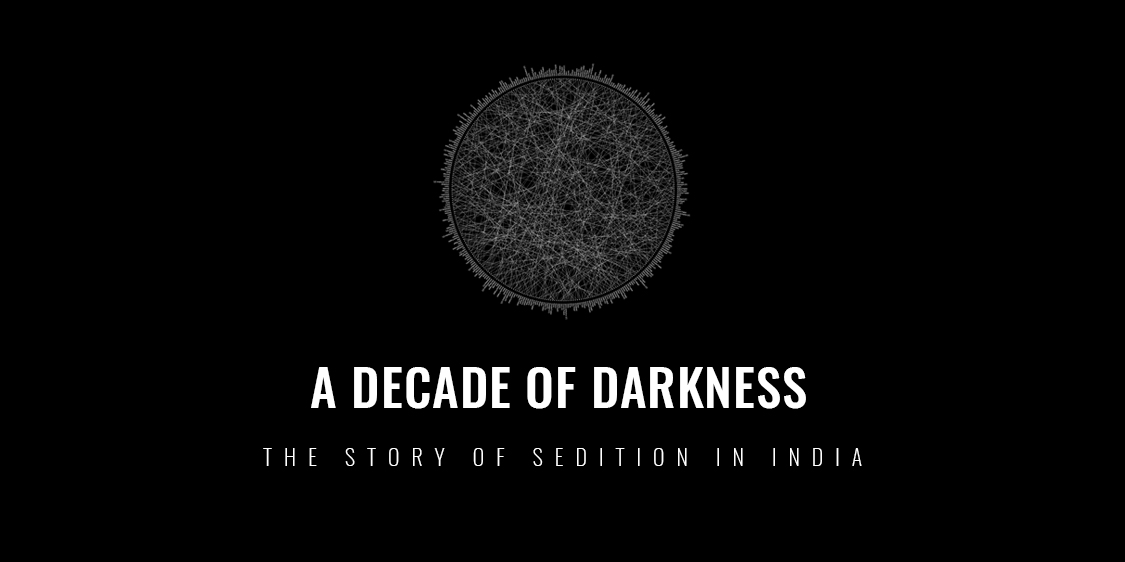
MAKEPEACE SITLHOU
By the time we reached C* in his village of Ganakjhar, located 60 km or so from my home in Guwahati, Assam, it was pitch dark. It took us half a day to find his address. We had no leads to any of his friends or associates nor any contact number for him.
All we had was his name, his father’s name and the name of his village.
But that was how we reached most of the accused who had been booked under sedition for a post shared on their profile that was deemed ‘anti Indian’ or ‘anti national’. They were all young, some college-going and others labourers who were caught in one of the most jingoistic waves of nationalism after 40 paramilitary troopers were killed in 2019 in Pulwama, Kashmir. We would later realise that this whole mood would not only endure, but get uglier.
The search for C emerged as part of Article 14's new database on sedition, which tracks sedition cases filed over the last 10 years against nearly 11,000 individuals across India, as the country’s police system continues to apply a colonial-era law discarded by most democracies around the world. I was part of the effort to find some people represented by these data.
At one point, en route to C's village, our vehicle hit a kuccha path that got narrower as we went along. By then, I was sure that we had hit a dead end. Suddenly, lights popped up at a distance, and as we got closer, a road appeared out of nowhere into the neighbouring village, Ganakjhar number 2.
Call it serendipity, or just dumb luck, but the lights shone from a grocery store–and the man standing behind the counter, where a variety of treats and candies were laid out, was who we had been looking for.
Most of the other accused who we reached out to were hesitant to speak or meet, fearing another trial by the media. Or worse, reliving their trauma two years later.
But C literally jumped up after we introduced ourselves and asked to hear his side of the story.
It was the last thing he expected to happen that day, or perhaps ever, but he was eager to say his piece and clear his name off the ‘deshdrohi’ or traitor tag that local TV had applied to him.
The rest is a piece of history that I’ve documented in a two-part investigation for Article 14.
I hope you will read it. We all owe C that much.
Read both parts here:
* C requested not to be named for fear of reprisal.






















.jpeg)

Write a comment ...